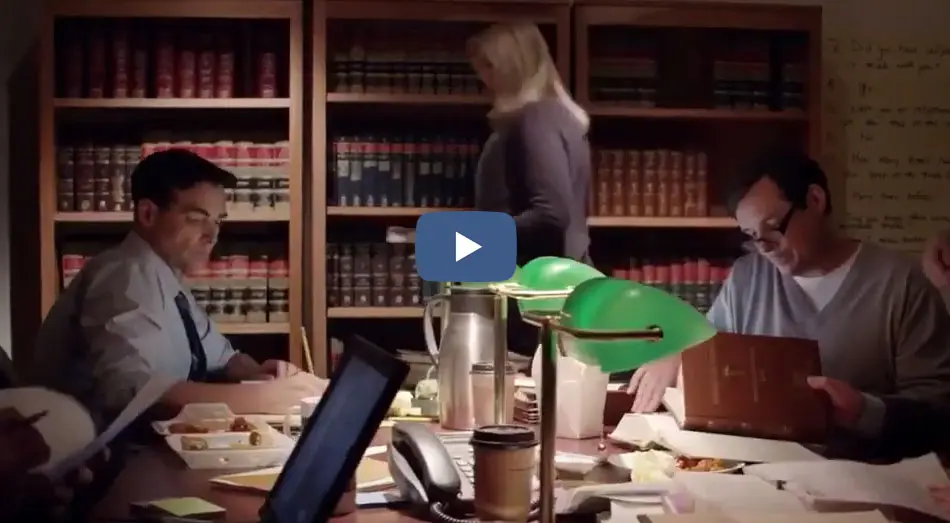When you’re dealing with mounting medical bills, lost wages, and the aftermath of a serious collision, you can’t afford to work with inexperienced car accident lawyers who settle for less. Munley Law’s veteran trial attorneys have recovered millions for accident victims. We are unafraid to take on insurance companies to obtain fair compensation for our clients.
Our award-winning legal team will investigate every detail of your case. We work with top accident reconstruction professionals and refuse to let insurance companies pressure our clients into unfair settlements. We handle everything so you can focus on healing while we fight relentlessly for the full compensation you deserve. An experienced accident lawyers at Munley Law is ready to fight for you today. Getting injured in an accident can be a frightening and devastating experience, so let our accident attorneys focus on getting you compensation.
Call or chat to schedule your free consultation with our experienced legal team.
$32 Million Wrongful Death
$26 Million Truck Accident
$20 Million Commercial Vehicle Accident
$17.5 Million Car Accident
$12 Million Work Injury
$11 Million Truck Accident
$9 Million Truck Accident
$8 Million Truck Accident
$8 Million Truck Accident
$7.5 Million Auto Accident
$6.9 Million Garbage Truck Accident
$6.5 Million Traumatic Brain Injury
Car Accident Lawyers Who Fight For You
A car accident can be a devastating and confusing experience, especially if you have never been in a car wreck before. Speaking with a car accident attorney as soon as possible is always a good idea to learn your rights and what you should do next.
We understand all the tactics insurance companies play to avoid paying the full amount of your injury claim.
When you hire Munley Law, you not only hire a law firm with decades of experience and a successful track record, but you will have someone in your corner ready to fight for you. Contact our car accident attorneys today to schedule a free consultation.
How Our Car Accident Lawyer Will Handle Your Car Accident Claims
Our personal injury lawyers understand that car crash victims will want to prioritize their mental and physical health and not focus on dealing with an insurance company or messy court case.
An experienced car accident attorney will take the weight off your shoulders by handling the insurance companies and your claim, all while you focus on healing yourself. Of course, our car accident attorneys will fight to award you a fair settlement for your car accident claims
Once you hire Munley Law, our accident lawyers will investigate your crash, prove the other party was negligent, negotiate with insurance companies, and fight for you at trial.
Investigate Your Car Accident Case
Our car wreck lawyer works closely with a team of experienced investigators, police, and professional reconstructionists to understand the details of your crash. We carefully collect and analyze essential evidence, including photos from the crash scene, witness statements, surveillance footage, and cell phone records, to build a strong case for you. We aim to ensure we have all the necessary information to present your case in the best possible light.
Prove Negligence in the Car Crash
To win your vehicle crash case, your injury attorneys must prove negligence. There are four elements to proving it:
- Duty – The defendant owed the plaintiff a duty of care. In car accident cases, all drivers must operate their vehicles reasonably carefully and follow the road rules.
- Breach – We must demonstrate that the defendant breached their duty by breaking the law or behaving recklessly.
- Causation – We must then show that the defendant’s actions caused a crash that caused you to suffer injuries.
- Damages—Finally, we must prove that you suffered economic and noneconomic damages from your car accident injuries.
Negotiate with the Insurance Company
 The car crash lawyers at Munley Law have served clients for decades, providing them with legal representation and fighting against insurance companies notorious for attempting to settle car accident claims for far less than victims are seeking. The insurance company never takes into account any future expenses you may have. Future medical bills, loss of earning capacity, and mental anguish do not just happen overnight. Our auto accident attorneys will calculate your expenses to determine how much your injury cases are worth.
The car crash lawyers at Munley Law have served clients for decades, providing them with legal representation and fighting against insurance companies notorious for attempting to settle car accident claims for far less than victims are seeking. The insurance company never takes into account any future expenses you may have. Future medical bills, loss of earning capacity, and mental anguish do not just happen overnight. Our auto accident attorneys will calculate your expenses to determine how much your injury cases are worth.
We understand the physical, emotional, and financial toll that car collisions can take on individuals and families, so we are committed to negotiating with insurance companies to ensure you receive the compensation you are entitled to. We believe in transparency and will never accept any settlement offers without your permission.
Fight for You at Trial
If the defendant’s insurance cannot reach a reasonable settlement, we have no problem trialing your case. Our team of skilled attorneys has a wealth of experience in advocating in courtrooms, and we will be thoroughly prepared to present all aspects of your case to a jury.
Do not wait until the last minute to hire accident lawyers. Each state has a time limit for how long you must file a personal injury lawsuit. The sooner you start the process, the easier it will be to prove your case. Contact the car accident attorneys at Munley Law today.
How Much Does It Cost to Hire Car Accident Attorneys?
At Munley Law, everyone should have equal access to justice, regardless of income. We know that being in an accident can be a stressful experience, so the last thing you want to worry about is expensive legal fees. That’s why our auto accident lawyer does not charge a fee for our services unless we win your case.
We cover all the upfront costs, so you don’t have to pay anything out of pocket. Our contingency fee is a percentage of the car accident settlement or verdict we obtain for you and will never exceed the total amount paid to you. You won’t owe us any money if we can’t win your case.
Speak with a car accident lawyer near you
Compensation Available in a Car Accident Lawsuit
At Munley Law, we help accident victims file personal injury lawsuits to recover compensation for damages sustained in a car wreck. Compensation can include economic, non-economic, and punitive damages.
The economic consequences can be devastating when someone suffers from an accident or injury. Economic damages help motor vehicle collision victims recover some of their financial losses. Economic damages can include:
- Present and future medical bills.
- Lost wages and lost earning capacity.
- Rehabilitation costs.
- Funeral expenses.
Non-economic damages cover the losses unrelated to monetary expenses or financial loss and are intangible. These damages are often challenging to quantify, and it takes an experienced attorney to ensure that the victim receives full compensation for such losses. Noneconomic damages may include:
- Mental anguish and emotional distress.
- Loss of enjoyment of daily activities.
- Loss of consortium/ loss of companionship.
Punitive damages in car collisions are extra payments to punish drivers for extremely dangerous behavior. They go beyond regular compensation and discourage reckless actions that put others at serious risk. Punitive damages are usually awarded in cases like drunk driving, excessive speeding, or intentional reckless driving. These penalties are only given when the driver’s actions completely disregard others’ safety, and the amounts can be much higher than normal insurance coverage.
Many insurance policies don’t cover punitive damages, so the at-fault driver may have to pay out of pocket. The goal is to encourage safer driving and hold those who act recklessly accountable. If you were in an accident where the other driver acted irresponsibly, it’s important to talk to a lawyer to see if you can pursue punitive damages.
We also help our clients pursue wrongful death claims against at-fault drivers to get justice for their loved ones and provide future security for their families.
Common Causes of Auto Accidents

Many auto accidents have various causes, but the most common cause is human error. According to the National Highway Traffic Safety Administration, there are more than 35,000 fatalities and hundreds of thousands of injuries each year caused by motor vehicle accidents. The likelihood of being involved in an accident at least once in your lifetime is high.
Distracted Driving
Distracted driving is the number one cause of auto accidents in the U.S. today. The number of deaths caused by distracted driving is rising each year.
Any time you take your eyes off of the road ahead (visual distraction), your hands off the wheel for any reason (manual distraction), or if your mind starts to focus on something other than driving (cognitive distraction), you are putting your life, and the lives of other drivers and their passengers, in jeopardy.
With distracting technology, such as texting on a cell phone or changing the music on the radio, and distractions along the road, such as bright billboards, many factors can take your attention away from the road.
Drowsy Driving
An individual’s driving skills and judgment are significantly impaired by driving while fatigued. Operating a vehicle while drowsy is proven to affect drivers similarly to driving under the influence of drugs or alcohol and poses a significant danger to the individual behind the wheel and other drivers.
According to the Centers for Disease Control and Prevention, being awake for 17 hours or more is similar to having a blood alcohol level of 0.05% or more. Those whose professions require driving late at night or for long periods, such as commercial truck drivers, shift drivers, or ridesharing drivers, are at higher risk for unintentionally driving while fatigued.
Drunk Driving
Driving while intoxicated is the cause of approximately one-third of all car accident fatalities, with more than 10,000 or more deaths due to drunk drivers each year. In the United States, it is illegal to drive with a 0.08% blood alcohol concentration. Driving past this limit seriously affects visual function, reduces coordination, impairs the perception of objects and speed, and therefore impairs overall vehicle control.
Drunk driving accidents are entirely preventable, yet there are still 52 deaths per minute attributed to driving while intoxicated.
Speeding and Aggressive Driving
One of the leading causes of fatal car crashes in the United States is driving too fast and aggressively. When people drive much faster than they should, it can cause accidents that result in serious injuries or even death. This problem is hazardous when drivers don’t slow down in bad weather or other dangerous conditions.
Poor Weather Conditions
Driving during poor weather conditions significantly increases your chances of an accident. Certain weather conditions, such as ice, fog, snow, and rain, will force drivers to slow down and drive cautiously.
Unfortunately, while most drivers adhere to inclement weather conditions, some drive negligently. Negligent driving during poor weather conditions includes drivers who refuse to slow down, turn on their headlights, or maintain a safe distance from other cars.
You don’t pay a fee unless we win your case.
What to Do After Your Car Crash

What you do after a car accident is vital in proving fault for your accident case. Here are a few things to remember to protect your car accident claim:
- Request a copy of the accident report. The police report will contain all your information about the car crash and the police’s opinions about what happened and who may be at fault.
- Contact your own insurance company. Even if you weren’t at fault or were in a minor car accident, you must contact your insurance company for insurance claim and let it know you were in a car accident involving injuries.
- Keep a record of all expenses after the accident. You should keep track of medical expenses, time off from work, and property damage.
- Make all your medical appointments. You need to get healthy, so you must follow up with your doctor after a car accident. Not only will you get the medical treatment you need, but this will also help determine how much your auto accident claim is worth.
- Don’t accept a settlement offer without speaking to us. The first settlement offer is usually the lowest amount the insurance company is willing to go. Never accept a settlement offer from an insurance carrier unless you have consulted with a car accident lawyer.
Call a Car Accident Attorney Today to Protect Your Rights and Options
Getting into a car accident can be a frightening and stressful experience, especially if you are injured. But before you contact the at-fault driver’s insurance company, you need to contact an auto accident lawyer at Munley Law.
The car accident lawyers at Munley Law have consistently been recognized among Pennsylvania Super Lawyers, and were recognized as one of the leading law firms in our region by U.S. News and World Report. For 65 years, our experienced attorneys have built a reputation for excellence in the legal profession. When you work with us, you can be confident that your accident case is in the best possible hands. Best of all, you pay nothing out of pocket, no matter what.
Call, chat, or use our online form today to schedule your free consultation.
Frequently Asked Questions About Car Accidents
When Should You Hire a Car Accident Attorney?
You should hire a personal injury law firm immediately following an auto collision. Dealing with the legal process after an accident can be complicated and overwhelming, especially if you also deal with injuries, damages, and losses. While you focus on healing, your automobile accident lawyers can get to work on your case. Working with an accident attorney can greatly increase your chances of getting a fair settlement and the best possible outcome for your case.
How Long Do I Have to File a Car Accident Lawsuit?
The statute of limitations for filing a car accident claim in the U.S. varies by state. Generally, the range is between 1 to 6 years. Here’s a typical breakdown:
- One Year: Some states, like Kentucky and Tennessee, have a one-year statute of limitations for personal injury claim from car accidents.
- Two Years: Many states, including California, Pennsylvania, Illinois, and Texas, have a two-year statute of limitations.
- Three Years: States such as New York and North Carolina have a three-year limit.
- Four to Six Years: A few states, like Maine, have longer statutes of limitations that extend up to six years.
It’s important to check specific state laws, as the timeframe may also differ for cases involving government entities or special circumstances, such as the discovery of latent injuries.
What’s the Difference Between Limited and Full Tort?
Tort law allows people to seek compensation from at-fault drivers after car accidents through liability insurance or lawsuits. Thirty-eight states follow the tort system, giving victims more freedom to sue for damages. In 12 other states, victims are limited in what they can sue for and must file claims with their insurance for medical bills. Drivers can choose between full and limited tort insurance in Kentucky, New Jersey, and Pennsylvania.
Full tort coverage lets you sue for full compensation, including pain and suffering, without restrictions. It costs about 15% more than limited tort insurance. Limited tort coverage only allows lawsuits for severe injuries. Pain and suffering refers to both physical discomfort and emotional distress, like loss of enjoyment of life or companionship.
In no-fault states, each driver’s own insurance covers medical costs through personal injury protection (PIP). This system helps injured drivers get paid without waiting for a fault determination. Full tort coverage falls under an at-fault insurance system, where the responsible driver must pay for all damages. Hiring a car accident lawyer can help you understand your options and get compensation, especially in tort-based states where suing is more common. Full tort is recommended if you can afford it, but limited tort is a cheaper option that still offers protection.
Speak with an auto accident lawyer near you.
What Happens If the Other Driver Is Uninsured?
If the other driver is uninsured, you can file a claim with your uninsured motorist (UM) coverage to cover medical expenses and lost wages. If you don’t have UM coverage or your damages exceed its limits, you may need to sue the uninsured driver, but collecting compensation can be difficult if they lack assets. Some states also have programs to help victims of uninsured drivers. Consulting a car accident lawyer can help you explore options and decide the best approach for uninsured motorist accidents.
How Can a Car Accident Lawyer Help Me After a Hit and Run Accident?
A lawyer can provide essential support after a hit-and-run car accident. First, they can assist in gathering evidence, such as witness statements, surveillance footage, and police reports, to strengthen your case. A lawyer can also work with your insurance company to ensure you get the maximum compensation through uninsured motorist coverage. Additionally, if there are any available victim compensation funds or other legal avenues for financial recovery, your lawyer will help you explore those options. Finally, since hit-and-run accidents involve criminal charges, a lawyer can guide you through your case’s civil and criminal aspects, ensuring your rights are protected.
What If I’m Partially At Fault For the Car Crash?
 Laws concerning fault vary by state. For instance, Pennsylvania follows a modified comparative negligence rule. This means that if you are less than 51% at fault in the collision, you can seek compensation from the other driver. However, your compensation will be adjusted in proportion to your level of blame.
Laws concerning fault vary by state. For instance, Pennsylvania follows a modified comparative negligence rule. This means that if you are less than 51% at fault in the collision, you can seek compensation from the other driver. However, your compensation will be adjusted in proportion to your level of blame.
Even if you’re worried that you may be at fault, you should still contact an attorney. At Munley Law, we’re happy to help explore your options at no cost to you.
Why is My Car Accident Settlement Taking So Long?
Depending on the complexity of your case, it can take several months before your settlement is approved. Many factors are considered, such as how quickly the insurance company is willing to settle your claim, the severity of your injuries, your losses, and the complexity of the accident. Contact our car accident attorneys immediately if you have any questions about your case.
What Should I Do If the Other Driver’s Insurance Company Calls Me?
Be careful if someone from the other driver’s insurance company calls or messages you after a car crash. Don’t tell them anything yet. First, talk to a lawyer who knows about car accidents.
Remember, insurance people are good at their job. Their main job is to help their company, not you. It’s smart to get advice from a lawyer before you talk to the insurance company or agree to anything.
Our Car Accident and Injury Lawyers Will Fight for You
If you or a loved one has been involved in a car wreck, speak with a car accident injury attorney at Munley Law. Our skilled car accident injury lawyers can help you get started with a free consultation. We’ll investigate what happened, build a strong case on your behalf, talk to the insurance company, and manage deadlines. If we need to, we can even represent you in court. Don’t wait! Call or chat with us today, and let us help you get the justice you deserve.
Reviewed by Bernadine Munley, Esq., Personal Injury Attorney at Munley Law, on June 20, 2025.










